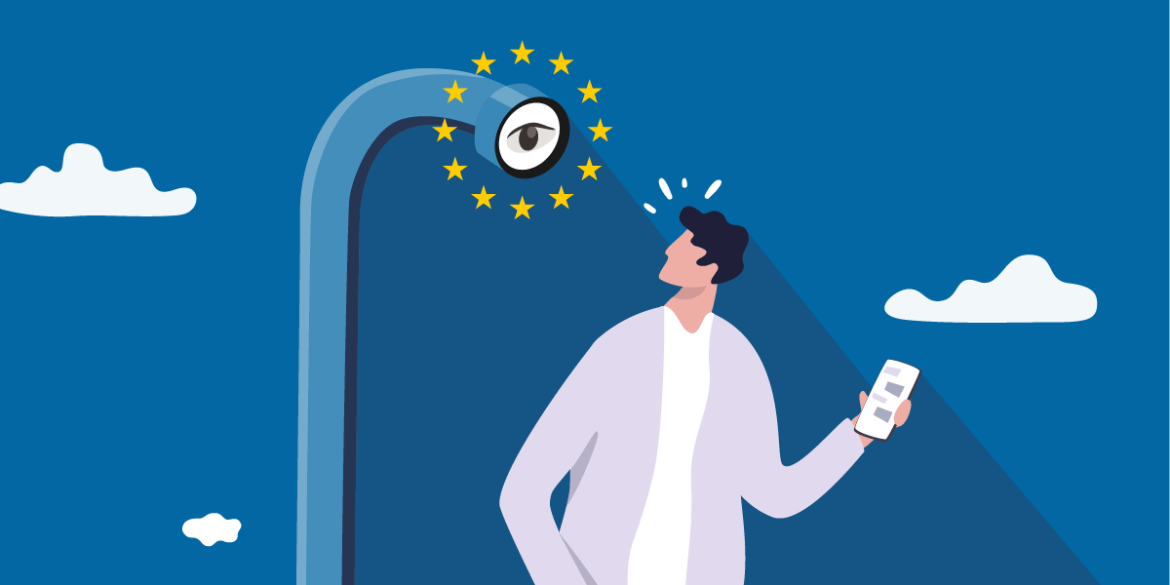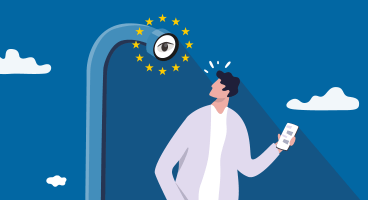
noyb files complaint against EU Commission over targeted chat control ad campaign
Today, noyb filed a complaint against the EU Commission’s Directorate General for Migration and Home Affairs. In September 2023, the Commission used unlawful micro-targeting on Twitter (X) to promote its heavily criticized chat control regulation. It seems that the Commission was desperate to garner public support, which could be used to pressure national governments into accepting the controversial legislative proposal. This move both undermined the established democratic procedures between EU institutions and violated the EU GDPR.
Massive backlash and a lack of support. The proposed EU regulation on chat control is arguably one of the most controversial EU regulations in a long time. The fear is that the law could undermine all encrypted online communications – and open the door to mass surveillance. It has faced massive backlash from both industry, civil society, academia, member states and the legal services of the European institutions. Despite the heavy criticism, the negotiations are moving forward in Brussels, with the EU Commission pushing for a timely adoption.
Micro-targeting based on sensitive data. Part of this seemingly aggressive attempt to promote the chat control was a targeted advertising campaign on X (formerly Twitter) to change public opinion. While online advertising isn’t illegal per se, the EU Commission targeted users based on their political views and religious beliefs. Specifically, the ads were only shown to people who weren’t interested in keywords like #Qatargate, brexit, Marine Le Pen, Alternative für Deutschland, Vox, Christian, Christian-phobia or Giorgia Meloni. The EU Commission previously raised concerns over the use of personal data for micro-targeting and described the practice as “a serious threat to a fair, democratic electoral process”.
Misleading opinion polls. The Dutch complainant was confronted with an X post claiming that 95 percent of Dutch people allegedly said that the detection of child abuse online is more important or as important as their right to online privacy. According to media reports, these statistics are misleading. They are based solely on opinion polls conducted by the EU Commission, which failed to mention the negative effects of a chat control mechanism to participants.
A complaint against the EU Commission. The Commission’s advertising campaign, which was even flagged as misleading on X, also violated European data protection law. Although people’s political opinions and religious beliefs are specifically protected by the EU GDPR, these very data categories were used for the ad campaign. noyb now lodged a complaint against the EU Commission with the European Data Protection Supervisor (EDPS) and is currently assessing whether to lodge a complaint against X for enabling the illegal use of sensitive data for political micro-targeting.
Felix Mikolasch, data protection lawyer at noyb: “The EU Commission has no legal basis to process sensitive data for targeted advertising on X. Nobody is above the law, and the EU Commission is no exception.”
Even X prohibits such use of personal data. The social media platform X states in its advertising guidelines, that political affiliation and religious beliefs should not be used for the purpose of ad targeting. The EU Commission’s campaign was nevertheless shown to at least several hundred thousand Dutch X users. The post in question is still available here.
Maartje de Graaf, data protection lawyer at noyb: “It is mind-boggling that the EU Commission doesn’t follow the law it helped to institutionalize just a few years ago. Moreover, X claims to prohibit the use of sensitive data for ad targeting, but doesn’t do anything to actually enforce this ban.”
A threat to democracy. It appears that the EU Commission has tried to influence public opinion in countries such as the Netherlands in order to undermine the position of the national government in the EU Council. Such behaviour – especially in combination with illegal micro-targeting – is a serious threat to the EU legislative process and completely contradicts the Commission’s intention to make political advertising more transparent. noyb requests the EDPS to fully investigate this matter in accordance with the EU GDPR. Given the seriousness of the violations and the large number of individuals affected, noyb also suggests that the EDPS imposes a fine.



